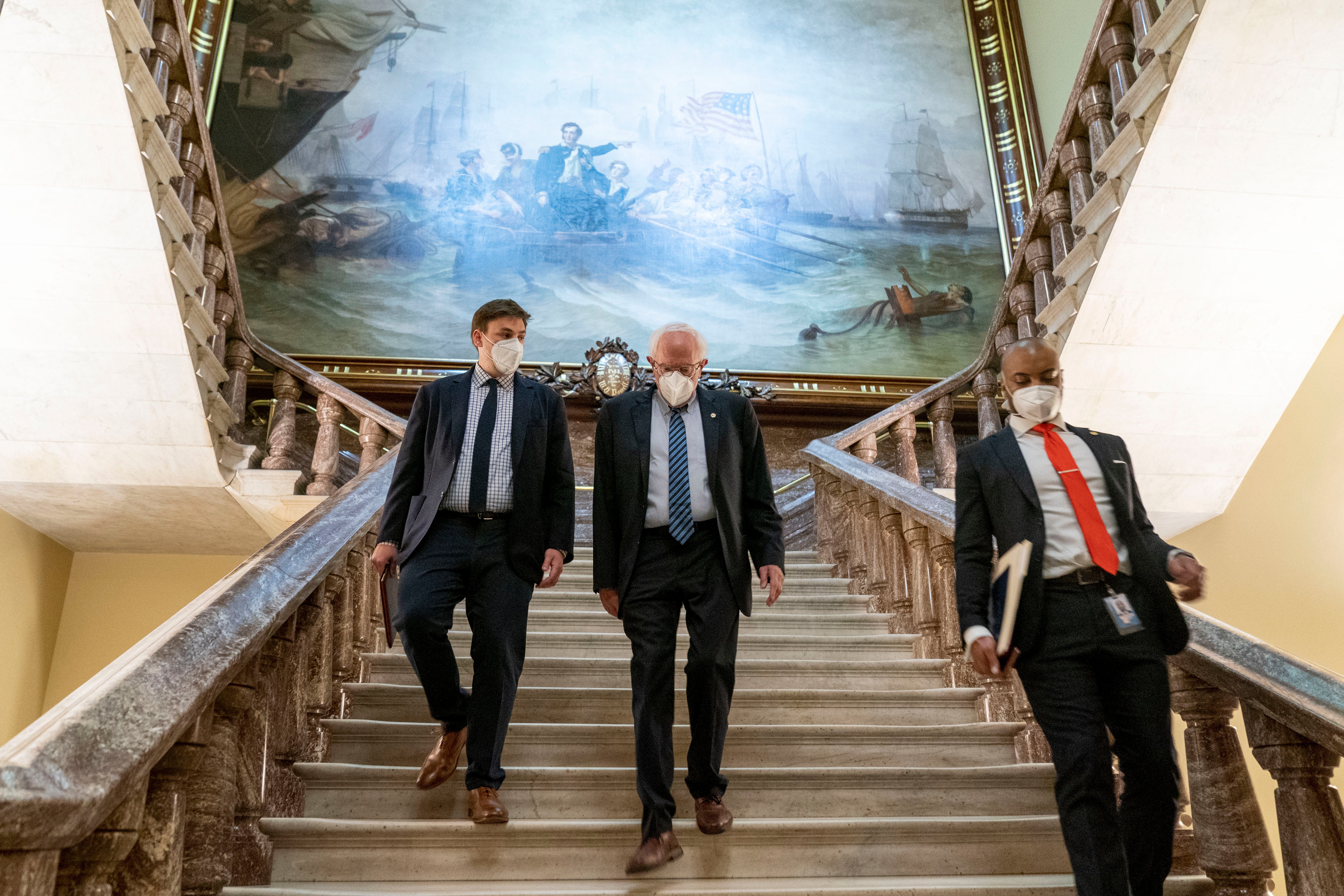Senate passes $3.5 trillion resolution in first step toward expanding welfare and healthcare safety nets
Bill sets up Democrats’ plan to pass sweeping welfare and healthcare expansions

Your support helps us to tell the story
From reproductive rights to climate change to Big Tech, The Independent is on the ground when the story is developing. Whether it's investigating the financials of Elon Musk's pro-Trump PAC or producing our latest documentary, 'The A Word', which shines a light on the American women fighting for reproductive rights, we know how important it is to parse out the facts from the messaging.
At such a critical moment in US history, we need reporters on the ground. Your donation allows us to keep sending journalists to speak to both sides of the story.
The Independent is trusted by Americans across the entire political spectrum. And unlike many other quality news outlets, we choose not to lock Americans out of our reporting and analysis with paywalls. We believe quality journalism should be available to everyone, paid for by those who can afford it.
Your support makes all the difference.Senate Democrats have passed a $3.5 trillion budget resolution, which would allow for Democrats to pass major parts of theirs and President Joe Biden’s legislative agenda while sidestepping a filibuster.
The vote was strictly along party lines, with all 50 members of the Democratic Caucus, including Independents Bernie Sanders of Vermont and Angus King of Maine, voting in favour while 49 Republicans voted against it.
Republican Sen Mike Rounds of South Dakota did not vote as he accompanied his wife to cancer treatment at the Mayo Clinic in Minnesota.
The bill came after a series of votes, called a “vote-a-rama”, wherein fleets of amendments are proposed by both sides as long as they pertain to the resolution at hand.
Democrats hope to pass the legislation through a process called budget reconciliation, which would allow them to sidestep a Republican filibuster.
But it comes with certain perils as the Senate parliamentarian has can determine whether legislation belongs in the reconciliation process. Earlier this year, the parliamentarian shot down Deemocrats’ hopes to raise the minimum wage to $15 an hour.
“What we’re doing here is not easy,” Senate Majority Leader Chuck Schumer said. “Democrats have labored for months to reach this point and there are many labors to come. But I can say with absolute certainty that it will be worth doing.”
The vote sets the stage for Democrats to pass legislation including many of their spending priorities, such as expanding childcare, home and community-based care for elderly people and people with disabilities, paid family and medical leave, as well as including dental, hearing and vision care in Medicare. It would also extend the child tax credit.
The legislation would also provide tuition-free community college, universal pre-kindergarten education for three and four-year-olds, child care and meeting the president’s stated goal of slashing carbon emissions by half.
Mr Sanders, who is the Senate Budget Committee Chairman, noted that the legislation is especially necessary given the fires raging in California, Oregon and Greece.
“It would be immoral and an absolute dereliction of our responsibilities as elected officials to do anything less,” he said. “Now is the time for our great country to lead the world out of this great existential crisis.”
The vote came after the Senate passed a $1.2 trillion infrastructure package with 19 Republican Senators voting in the affirmative, including Minority Leader Mitch McConnell.
The vote promoted House Majority Leader Steny Hoyer to tell his colleagues the House will reconvene from its August recess on 23 August when it was scheduled to return 20 September, NBC News reported.
House Speaker Nancy Pelosi has said she would not put the bipartisan infrastructure plan to a vote without first voting on the more reconciliation bill. More moderate Democrats have urged for a standalone vote on the bipartisan bill, while more progressive Democrats have urged for the reconciliation bill.
Join our commenting forum
Join thought-provoking conversations, follow other Independent readers and see their replies
Comments